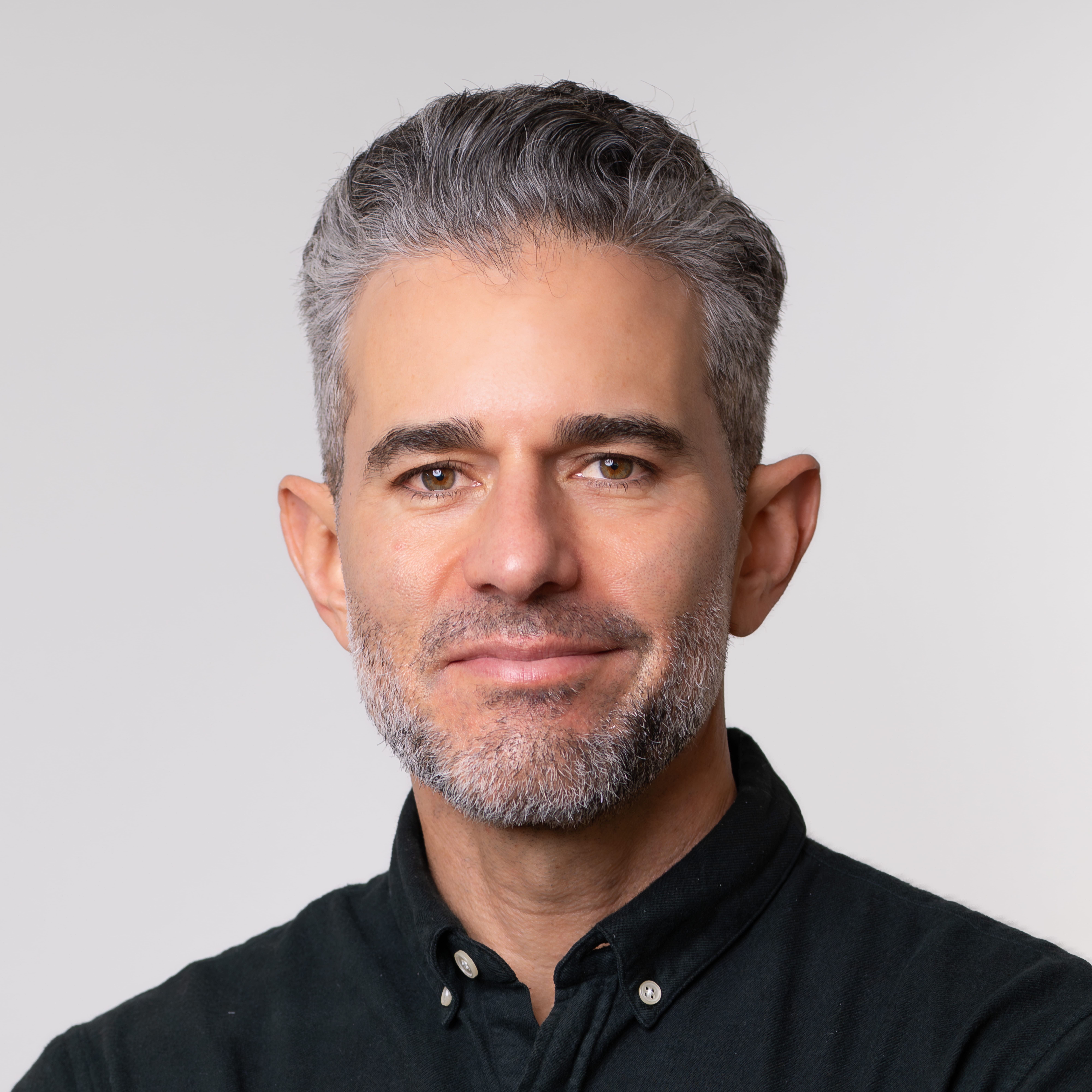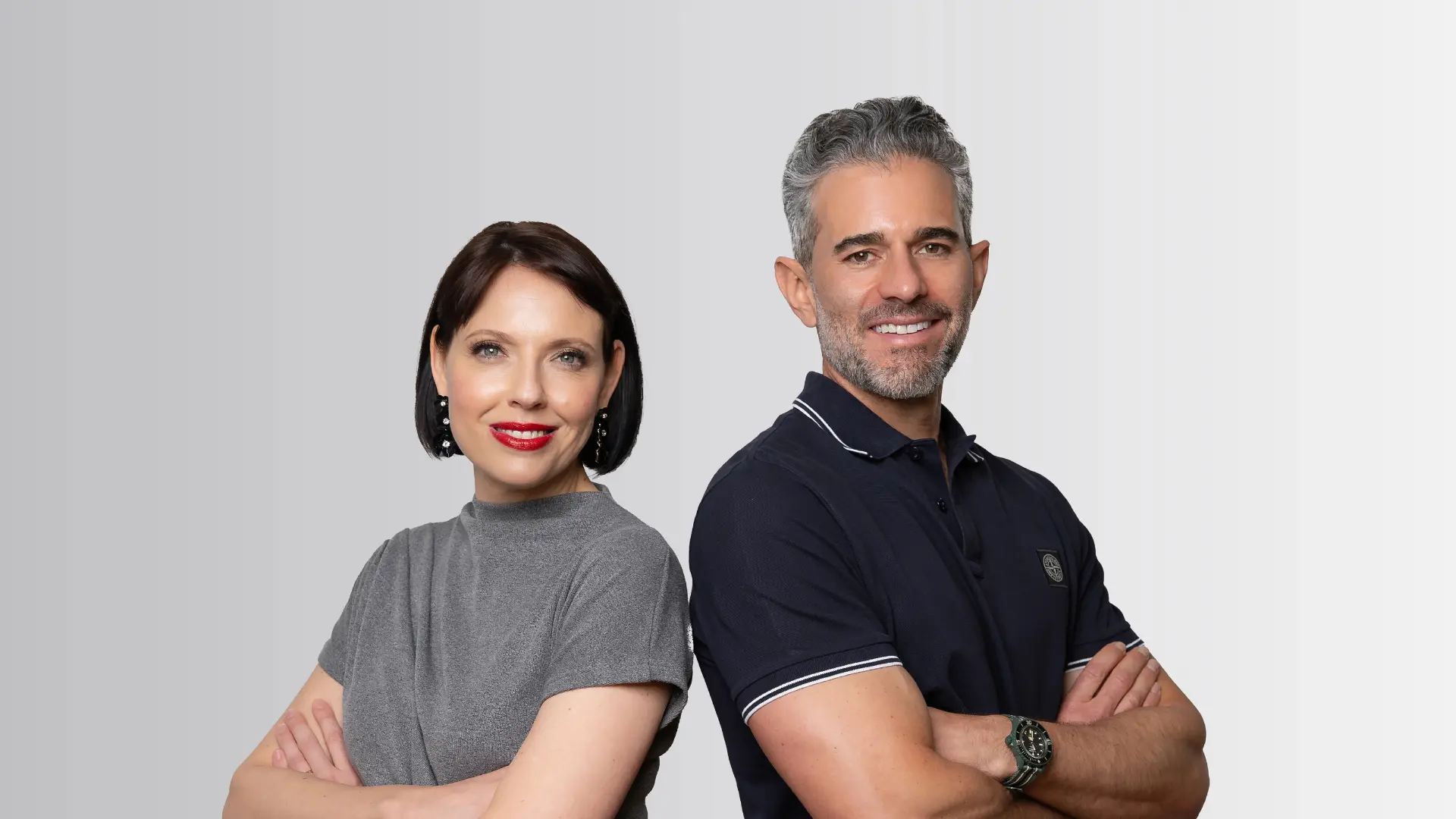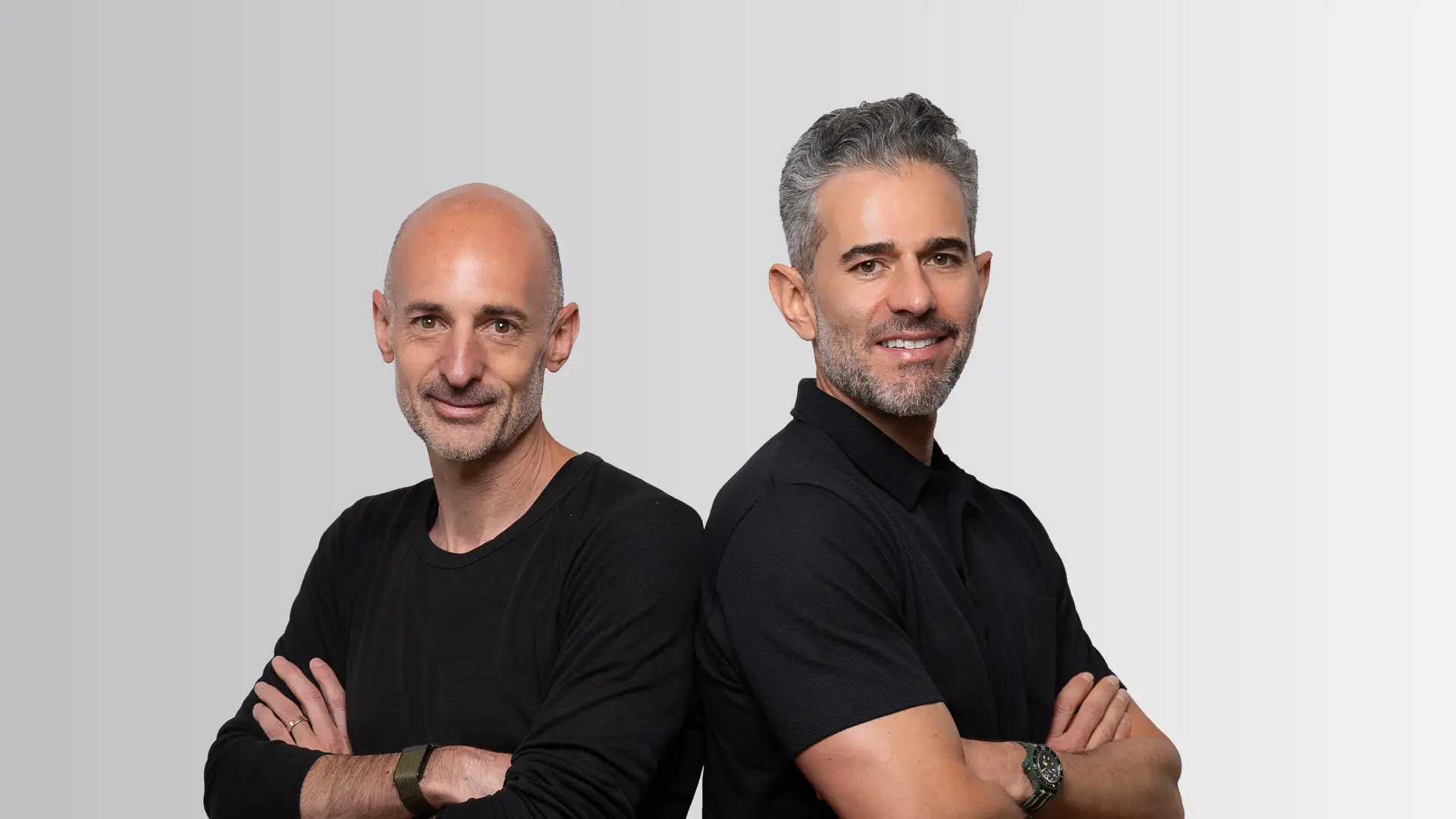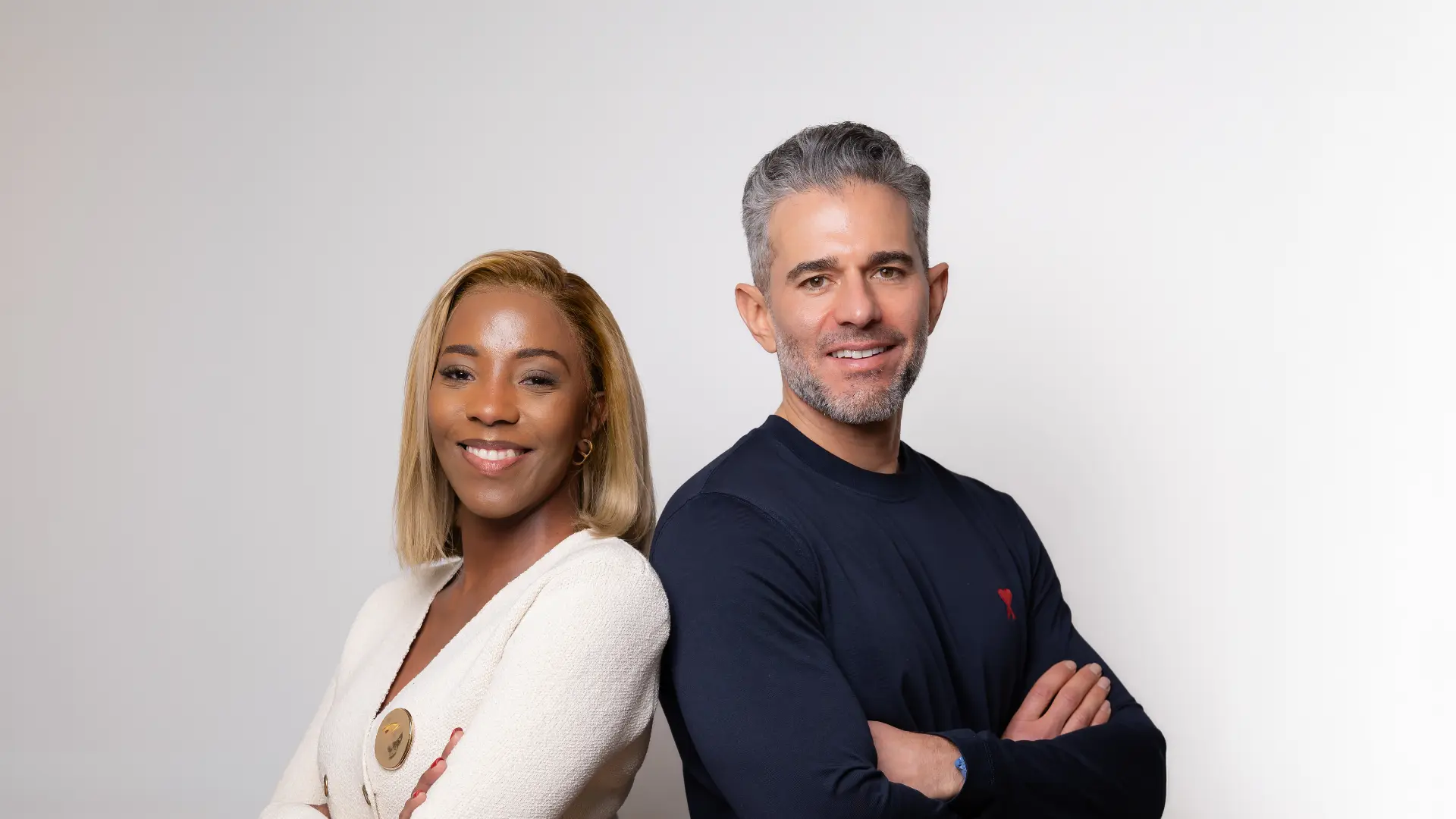In this episode of Here We Grow, Dov Girnun sits down with Zanta du Plessis, founder and CEO of Isabella Garcia, to unpack how she blends data, actuarial models, and bold creative thinking to scale a beauty brand.
Transcript
Chapters
- 00:00 – 01:09 | Opening
- 01:10 – 06:36 | Building our Beauty Business
- 06:37 – 08:21 | The Brains Behind the Beauty
- 08:22 – 10:55 | The Power of Mentors
- 10:56 – 13:44 | Actuarial Principles in the Beauty Industry
- 13:45 – 16:24 | Beauty and the Business Beast
- 16:25 – 21:26 | Balancing Business and Family
- 21:27 – 24:40 | Entrepreneurial Lessons from Zanta
- 24:41 – 26:38 | Looking Ahead: Grabbing Opportunities with Both Hands
00:00 – Opening
Dov: Welcome to the Here We Grow podcast. I’m your host, Dov Girnun. We share the real stories, bold moves, and the tough truths behind business growth. Today, I have the privilege of being joined by Zanta du Plessis, who is the founder and CEO of Isabella Garcia.
Dov: We met during our YPO training a couple of years ago, and I've had the privilege of being in your YPO forum and having a front row seat to watching you as a business leader, CEO, succeed in scaling your business, Isabella Garcia, all while being a successful wife, mom, daughter, friend, community member.
Zanta: Thanks so much, Dov.
01:10 – Building Our Beauty Business
Dov: Take us back to 2010 when you started the business. How did Isabella Garcia come about?
Zanta: I grew up in Johannesburg as one of three daughters. I studied Business Communication at NWU and after university I received two opportunities on the same day: One in my field of study, the other not. I started working as a client care consultant at an insurance company where the CEO wanted to create a new department. I will never forget the day I met Shachar [Shlesinger], he told me “Forget everything you were taught. I am going to teach you the way”. He exposed me to marketing methodologies of an American marketing guru called Jay Abraham.
Zanta: Shachar arranged a meeting with me and asked me, “What would you like to do with your life?”. I told him I would love to run a company, obviously not yours. He was happy I said not his. He said okay, go and find a business idea and I will fund you. As long as he could be majority shareholder.
Zanta: At that point in time, I was responsible on the insurance side to also source gifting. I started to realise a few things that Jay Abrahams said in his teachings, what Shachar taught me, and some of my own common sense to understand what was working and why it was successful. They could market to a lot of people who felt comfortable paying small premiums per month. I juggled with the idea of going to other companies to ask if we could promote their products to insurance policy holders. I received a lot of objections against this as they had agents in place, and it would be difficult to have another channel for sales.
Zanta: I met Maria who owned a company focused on cosmetic gifting who didn’t have agents which enabled us to test that concept. Maria taught me everything about cosmetics and about storytelling and how to present cosmetics for the masterpieces that they are. She also owned formulations in her personal capacity. I had four months to set up our own brand, do our wording and our own packaging.
Dov: What’s fascinating is that you had this unlikely bedfellow, this unlikely combination of insurance and using data and actuarial models to make decisions, combined with this very kind of emotional, subjective, non-data driven thing, which is beauty. You don’t typically see these two types of things coming together, and you created something which is quite special and unique in the industry.
06:37 – The Brains Behind the Beauty
Dov: You’re often called the brains behind the beauty. But tell us in your own words, who is Zanta?
Zanta: Zanta is somebody who wants to lie on a deathbed one day and say, I did my best. Zanta is a mom. She's a wife. She's a daughter, she's a sister, she's a friend, she's a colleague. But Zanta is on a mission to change the world beauty stage. Zanta has another 25 years that she'll have enough energy to tackle every challenge that comes our way. And she really wants to serve people and to make a difference to people's lives. That's why our mission is to provide women and men with everything they need to be their best and most beautiful. Because at the end of the day, that determines so much of how we feel about ourselves and the confidence that we have.
08:22 – The Power of Mentors
Dov: You mentioned Shachar earlier, and then he seemed to play quite an important role in your life. Tell me a little bit more about how he's been a mentor and what you learned from him. And the other key people that have really shaped your business and personal life.
Zanta: I've been so blessed to have Shachar in my life. He started off as being my boss, then turned into my teacher, then into my mentor, and today my majority shareholder. Shahar's an actuary, and he exposed me to how actuarial principles could be applied in business. And when I say that Shachar really taught me everything that I know about business, that is really true because I didn't study for a business degree.
Dov: Shachar told you to forget everything that you had studied anyway, right? I love that.
Zanta: One of the first lessons was, Zanta do you know what business is about? It’s about buying for one and selling for two. We often complicate things but at the core is that we have to do something of value that people appreciate and that people are willing to pay for. Shachar is a balanced role model who is diligent at everything in his life: being a good family man, religious, business focussed, looking after his health.
Dov: You are fortunate because you often find this mentor, or this person that you look up to, and in one part of their life, that's what you want to try emulate. But then once you get to know them a bit better, you realise that actually you don't want to emulate the other parts of their lives.
10:56 – Actuarial Principles in the Beauty Industry
Dov: How have you managed to apply that kind of data-driven thinking to shape customer experience in the beauty industry?
Zanta: Because we allow people to pay off purchases, we have mimicked sort of what happens in an insurance company. That was the main reason that we needed to bring in these actuarial principles. We invest a lot of money in their beauty journeys without breaking even for quite a long time. Clients can get a complete range of products at once, but that leaves a responsibility on our side because we have outlaid a lot of money in terms of those initial expenses. And people don't have 100% paying back behavior in South Africa.
Zanta: What actuarial data gives you is data on a very granular level. And because they give you the future predictions rather than looking at the historical information from accounting, it helps you to make pinpointed decisions.
Dov: It's a super advantage, and it kind of makes me think of Merchant Capital and our business. We are making credit decisions based on live data, so the behaviour of how a potential client behaved in the past is not always a predictor of how they're going to behave in the future. Because of the way we kind of utilise live data on a daily basis, we're also able to make those decisions very quickly. I think the thesis is very similar. We're just applying it in a credit world where, you know, you're applying it in the world of beauty.
13:45 – Beauty and the Business Beast
Dov: So Zanta, you're a woman leading in two very different worlds. You've got this creative, emotionally driven beauty industry, and then the highly analytical world of being the leader and the CEO of the business. And the growth has been just absolutely astounding. But how have you balanced these two skill sets?
Zanta: You know, I just love to see this love story unfold between the beauty and the business beast. And I'm so grateful because I am very balanced in both areas. At the end of the day, it really doesn't matter to me where the progress came from. I can be super happy if I see amazing stats, and I can be super happy if I see beautiful artwork and the new launch of products. The beauty about this industry is that it actually requires a mix.
Zanta: You know, it’s this orchestra, you've got these different musicians, they all have to have their own skill sets. They love what they do and it is like keeping it in rhythm and playing this beautiful song. And that song is made-up of a part that is creative and a part that's very analytical and data-driven.
16:25 – Balancing Business and Family
Dov: What's even more spectacular is that you've managed to do all of this by also being this incredible mom, a daughter, a family member. Do you apply the same type of rigor in the way you lead your house, with your boys and Peter? I've had the privilege of meeting Peter. I know he's a passionate pilot. I know he works in the business as well. It'll be interesting to know how you've managed not taking business talk home to the dinner table.
Zanta: The other day I asked my eldest son, did he feel ever that we didn't manage the balance? When he was born, that's basically when the business needed to start. He always felt that we managed that very well. I can't say it was without its challenges. I'm very diligent and I try to be diligent in all areas. So what I try and do is when I'm at work, I'm really at work. When I'm at home, I really try my best to really be at home. It is a balancing act, but I’m really grateful that it turned out that I could balance all of that not having to give up, your marriage or your relationship with your kids in order to be able to run a business.
Dov: I think that it's the what you've managed to do is the exception rather than the rule, because very often, as we spoke about it on a previous podcast, the whole work-life balance thing, when you're the leader of a business like this, it actually doesn't exist.
Dov: How have you guys managed the family dynamic within business? Has it been all positive and additive and would you do it again?
Zanta: So Peter oversees the logistics and some of the manufacturing for us. There's nobody that I would trust more to do that, and especially when there's things that's not part of your main skill set. So it's very complementary. And we don't see each other because we don't work at the same premises, which I think is a blessing in disguise. We have very similar personalities, but we are skilled in very different areas. Luckily, our foundation in terms of integrity and in terms of work ethic and in terms of precision matches each other. And I think that is very important.
Dov: I think that's a big takeaway, at least for me, is that you obviously run the risk by getting into business with friends, family, whatever it is that potentially if things don't work out, then you risk that relationship. The flip side to that is that there's no one else who you would trust more. And in business, it's trust, loyalty, integrity, alignment of core values and the way you want to treat people.
Zanta: So that doesn't come without the stress. I mean, we're busy with a big system deployment and that's been very, very taxing on us. But it's also these things form us, these things grow us. And as long as we learn from these experiences, I think that's the most important.
21:27 – Entrepreneurial Lessons from Zanta
Dov: So Zanta, can you share some of the entrepreneurial lessons that you've learned along the way?
Zanta: I think I'm going to write a book about this one day. We've learned so many and are still learning some lessons along the way. I've got, however, one rule in the company. And that rule basically says, we try and do it once. If we make a mistake once, we try not to do it twice.
1. So the first thing that I think is the most important thing for any entrepreneur to do is to take action. One of the first tapes that Shachar gave me was of Tony Robbins. And he says, power is the ability to take action even if it's the wrong action. As long as you learn something, that's invaluable.
2. The second thing that I learned is no one knows, including me, what will and what won't work. So your best way of finding that out is actually to do small-scale tests where you don't take a huge financial risk and you can then see whether it's viable or not.
3. The third thing I would say is the data speaks. You have to really listen carefully, and you've got to make sure that you receive those numbers and stats timeously and that it is accurate. It will give you clues on what to do next.
4. And lastly, I could learn and see firsthand how much better the chances of success is when you focus on a startup versus a setup. So just to explain a little bit there, a startup is when you only have a good idea. A setup is when you can leverage from relationships, distribution, leads, anything like that, to give you a more solid foundation.
Dov: I love all of them and I think the listeners are going to get huge benefit out of that. I can personally resonate with all of them, but specifically number 2. We call it test and learn. And I think as business owners and even being kind of A-type personalities where you're used to controlling everything, you want things to be perfect before you go into market. And that's certainly a lesson that we've learned is that you can almost be 80% good enough. And then just test and learn and be agile and iterate and you'll get much further that way by waiting for things to be perfect before you ship. And it's a thing that I think a lot of early stage entrepreneurs don't get right. You know, they think they needed to have everything to be perfectly polished and ready to go. Just get it out there. Test and learn, experiment, learn, fail. And that's the way you're actually going to refine the product.
Zanta: It's fascinating what you're saying there, and it's so true. People get stuck on this one idea, but I mean, if you read the Netflix book, they started with something and landed up doing something completely different, and all businesses goes through those phases.
24:41 – Looking Ahead: Grabbing Opportunities with Both Hands
Dov: I always like to end the podcast with the same question. When you're 80, what are the things that you hope to be the most proud of?
Zanta: I really just want to feel that I did my absolute best every single day. At that point in time, I want to know that I took on the opportunities that came my way with both hands and everything that I had in me, and that I'm still thankful for God's grace every day.
Dov: It's been an absolute pleasure having you on the show. I think you're an inspiration not only to all the listeners, but I think to the women business leaders out there.

.png)







.webp)
